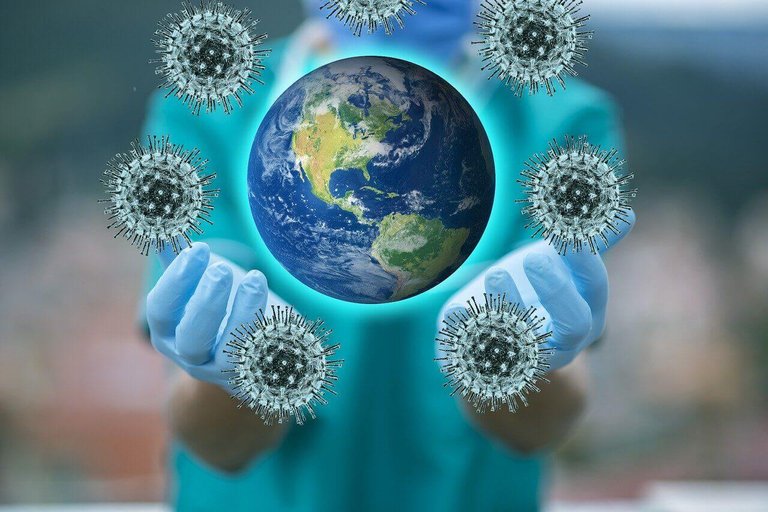
"I am currently having the time of my life staring at walls, watching the depressing news and accepting the Dalgona coffee challenge" - said no one ever. Staying positive during lockdown is becoming an insurmountable challenge in life. A life in which social distancing is the holy book, hugging is a satanic adventure sport that can land you in jail, something containing alcohol finally gets to play god ie. sanitizer, and nobody knows how coronavirus will change the world. I'm currently flaunting my third layer of skin, thanks to the previous two layers getting peeled off from all the handwashing. Coronavirus has literally transformed our lives into a strange Black Mirror kind of an episode.
However, not everything that's happening is bad. There are many positive impacts of coronavirus as well - air and water quality standards are improving as the industries are shut, people are spending quality time with their families, the carbon footprint is no longer increasing due to over-tourism, etc. People are eagerly waiting for doctors to cure all the corona-positive cases so that they can finally step out of their houses. Speaking of stepping out, have you ever wondered how the post-Corona world is going to be like? How will our lifestyles, behaviours, priorities, and values change? In what way will the collective consciousness of humanity be affected? Let's find the answers to these questions and analyze how Coronavirus will change the world.
16 Ways In Which Coronavirus Will Change The World
1. Learning To Value Our Real Heroes
Coronavirus is changing the world by teaching us that our real heroes are the silent warriors who are fighting the disease on the ground and making lives easier for the people sitting at home during the lockdown.
Doctors, nurses, pharmacists, police officers, bank employees, service members, cleaners, vendors supplying fruits and vegetables are putting their lives at risk and working round the clock to ensure not only the safety of those inside the hospital but also the fulfillment of the needs and requirements of those outside the hospital.

These heroes have, in a way, led to the birth of a new brand of patriotism. People realize that the warriors fighting an invisible enemy like the coronavirus within the country's borders are equally important as the ones fighting visible enemies outside the country's borders. An example of this could be seen in the National Army Day parade in Tehran, Iran where medical gears were flaunted instead of missiles and jets.
The Indian government, in fact, has announced an insurance cover of 5 million rupees per person for all the frontline health workers. The health workers group includes doctors, nurses, sanitation staff, paramedics, and ASHA workers.
Companies around the world are not only filling the shortage of essential medical supplies but also providing freebies and discount deals to the health care employees as a token of appreciation for their tireless work.
Therefore, coronavirus will change the world for the better by teaching people to value their real heroes.
2. Governments Shifting Focus To The Healthcare Sector
The severity of the coronavirus pandemic is brutally exposing the weaknesses of the healthcare systems across the globe. Even the most powerful countries like the United States and Italy are unable to meet the rising demands of essential medical supplies and medical equipment.
While the US requested India to send the hydroxychloroquine drug in bulk quantity to fight the coronavirus, Italy requested China to send ventilators and face masks to keep up with the rising number of corona positive cases in the country.
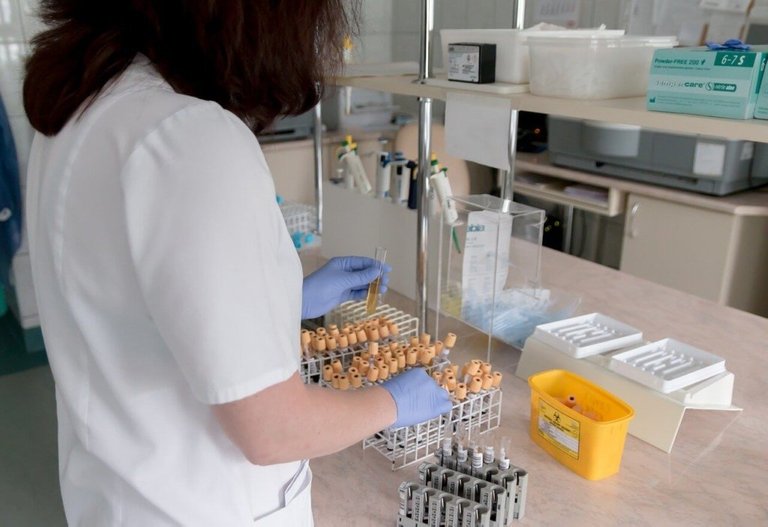
All the countries are slowly realizing that had they invested more in the healthcare sector instead of recklessly spending money on advanced military weaponry and nuclear arsenal, they wouldn't have had to depend on other countries to handle a pandemic like COVID-19.
This realization has forced governments to shift their focus to the healthcare sector. In the future, you'll be seeing governments allocating more funds to improve the health infrastructure. Because at the end of the day, you can't shoot a virus. You can only treat it. And it's a necessary change considering we'll be fighting more biological wars in the future instead of military wars.
3. Revived Appreciation For The Outdoors
Stepping out of the house was a normal activity for all of us. In fact, it was such a part of our daily routine that we took it for granted.
However, after being confined to our homes for months, we are yearning to go out, breathe some fresh air, and connect with nature. We're finally understanding that even getting to be outdoors is a luxury.

Children are missing playing in open spaces like gardens and playgrounds. Adults are missing exercising outdoors, taking long walks in the park or on the beach. People, in general, are missing the joy of spending time amidst nature.
But why are we missing nature? Scientific research says that contact with nature is important for a person's physical and emotional well-being. So it's obvious that being away from nature for a long period of time due to the lockdown is going to lead to a revived human appreciation for the outdoors.
4. Restructuring Social Policies To Help Informal Sector Workers
Informal sector workers are workers who are self-employed or are working for people who are self-employed. They are suffering the most during the coronavirus pandemic as they depend on their daily wages to feed their families. The situation is such that it seems like hunger will kill them long before coronavirus does.

Existing social policies are failing to take care of them as the government is generally focused on the formal sector which pays all the income tax. Therefore, to ensure that such a dire situation doesn't arise in the future, governments are looking to restructure social policies to help the informal sector workers.
Governments are planning to reorganize existing social policies to provide informal sector workers with better healthcare, social protection, and social security (benefits for retired, disabled, survivors). By ensuring their welfare and well-being, countries will be in a better position to handle global challenges like COVID-19 in the future.
5. Changing How We Work
Work from home is becoming a major part of people's working schedules in times of lockdown. People are understanding that only a couple of things are enough to get work done - video conferencing apps and a nod of approval from the boss.
You don't have to spend your time and money to travel all the way to the office to attend a meeting. A simple video conference call from home does the job just as well.

The lockdown is helping people realize that a lot of doctor appointments, training classes, therapy sessions, and corporate meetings could have just been online lectures, video conference calls, or e-mails. In fact, people are even managing call center operations on the go with the help of several call center apps.
In a way, coronavirus will change the world forever by changing how we work. It will help us adopt a time-saving, environment-friendly, and sustainable style of working in which important work can be done without investing a lot of money and non-renewable resources. This will preserve our fastly-diminishing reserves of fossil fuels and thereby, give us hope for a better future.
6. Countries Reducing Their Reliance On China As a Manufacturing Base
The coronavirus pandemic is forcing countries to reflect on their existing trade relations with China. You must have heard the news of Japan funding it's firms to shift production out of China.
Japan recently announced a $2.2 billion stimulus package for it's manufacturing firms to shift their production out of China because the coronavirus pandemic disrupted the supply chains between the two countries.
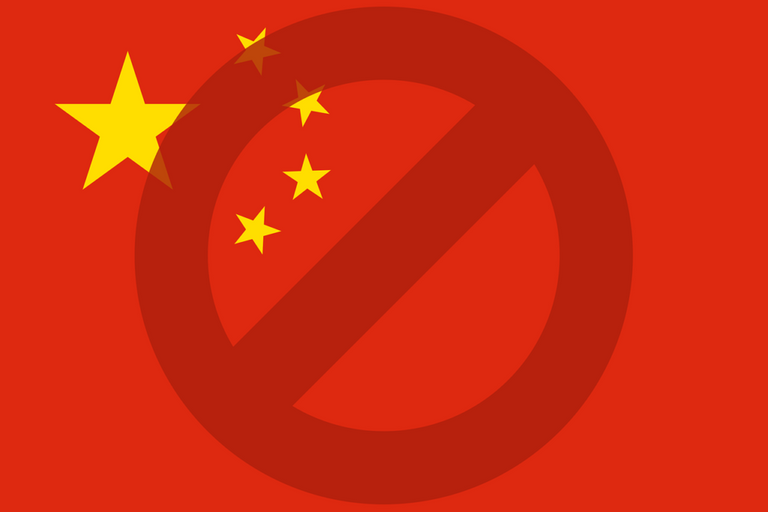
China is Japan's biggest trading partner. But since the Chinese industries were shut due to lockdown, Chinese imports in February sank by nearly 50%, starving the Japanese manufacturers of essential parts required for production. With the production being shut, Japan, to offset the devastating effects of the pandemic, decided to fund it's firms to shift their production to either Japan or some other country.
Not just Japan, even South Korea is contemplating moving it's manufacturing units from China to India. Countries around the world are trying to reduce their reliance on China as a manufacturing base and exploring other possible options. This helps them in diversifying production across different countries and reducing supply chain reliance on China.
7. Becoming Conscious Of Our Lifestyles
Since coronavirus mainly attacks people with a weakened immunity system, we are increasingly becoming conscious of our lifestyles.

In order to strengthen our immunity to fight the virus, we are adopting healthier lifestyle choices like :
- Eating fresh home-cooked food as bars and restaurants are shut and hygiene standards of food delivery outlets aren't known. Therefore, we're avoiding excessive consumption of junk food and alcohol.
- With time on our hands and no office deadlines to meet, we are incorporating physical exercise and meditation into our schedules.
- Cooking our meats thoroughly and consuming more fruits and veggies.
- Washing hands at regular intervals to avoid infection.
- Getting adequate sleep.
- Embracing productive hobbies like reading, cooking, baking, writing, painting, knitting, etc.
- Learning new things through online classes.
We know that anything practiced regularly over a long period of time becomes a habit. And with the lockdown not ending anytime soon, many of the above-mentioned lifestyle choices will turn to habits and continue being a part of our lifestyle even in the post-corona world. Thus, coronavirus will change the world by changing the habits of it's people.
8. Understanding That Wildlife Trade Has To End
Majority of the viruses that make us sick originate in animals. The coronavirus is also one of them. When the doctors tried to trace the origin of COVID-19, they found the Huanan seafood wholesale market in Wuhan, China to be the likely source of the coronavirus (SARS-CoV-2).
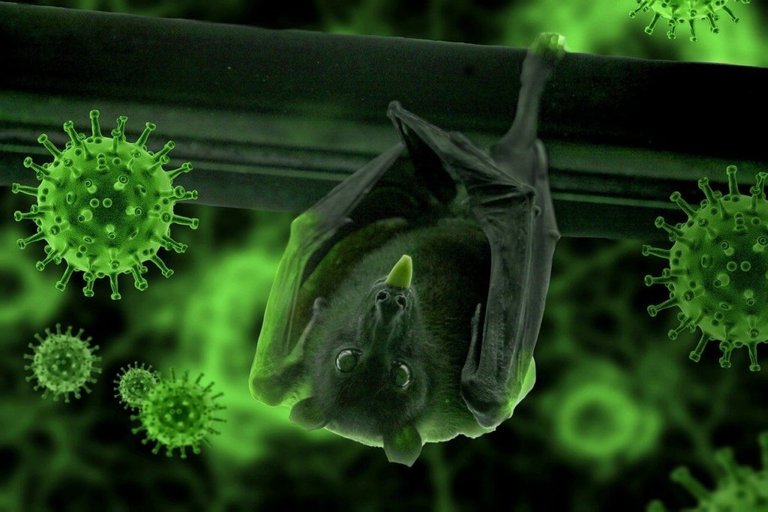
In 2002, the SARS coronavirus had emerged at a similar food market in southern China killing 774 people across 26 countries. The Ebola virus likely originated in bats while the Swine flu originated in pigs. The list is endless. What it tells us is that wildlife trade is a key driver of these zoonotic diseases. We indulge in the wildlife trade for three main reasons - food, exotic pets, and use in medicine.
It is this greed of ours that is leading to our downfall in the form of various pandemic diseases and outbreaks. We have to understand that wildlife trade has to end. Maintaining a healthy relationship with wildlife and stopping the destruction of nature will lower the risk of such diseases spreading in the future. In fact, the UN Biodiversity chief has recently called for a global ban on wildlife markets to avoid future pandemics.
9. Marriages And Birthdays Becoming Humbler Celebrations
With community gatherings being banned and people being confined to their homes due to lockdown, birthdays and marriages are becoming intimate, home-bound, humbler celebrations.

Before the pandemic, marriages and birthdays were grand public affairs, with people spending obnoxious amounts of money for no rhyme or reason other than to flaunt their wealth. But thanks to the COVID-19 pandemic, birthdays and marriage celebrations are becoming less superficial and more real, with the focus solely centered on the people and their emotions.
People are celebrating birthdays at home with their loved ones, while their friends and relatives are joining the celebrations through video conference calls. Marriages too are becoming humbler events as couples are either live-streaming their intimate weddings to guests (who are unable to attend because of the lockdown) or exchanging vows of sticking through thick and thin over video calls.
Hence, coronavirus will change the world by teaching us that "minimalist celebrations can also give you joy". A lesson that will benefit us even after the world normalizes.
10. Realizing The Value Of Human Touch
Touch is the first sense we develop as humans. It is the basic language of human connection and plays a vital role in our physical and mental well-being. We're all used to some level of platonic touch in our daily lives.
However, with people practicing social distancing and living in self-isolation for a considerable period of time to stop the spread of COVID-19, some of us are dearly missing the feeling of human touch.

A positive touch like embracing/hugging a friend or cuddling with a romantic partner releases "feel-good" hormones like serotonin, dopamine, and oxytocin in the brain which improves our immune system, uplifts our mood, promotes good sleep, regulates digestion and reduces stress, anxiety, and depression.
By depriving us of these "feel-good" hormones, the coronavirus pandemic is helping us realize the value of human touch in our lives. As a result, we'll not only be more appreciative of the human touch but also be a lot more compassionate towards each other in the post-corona world.
11. Understanding The Effort That Goes Into Domestic Chores
Maintaining a house is no child's play. And I learned it the hard way. Being a spoilt single child, I've never had to lift a finger thanks to the prominent maid culture in Asia.
Don't get me wrong. I have washed and ironed clothes, stitched handkerchiefs, and successfully failed at cooking during childhood. It's just that I've never done any household activities consistently.
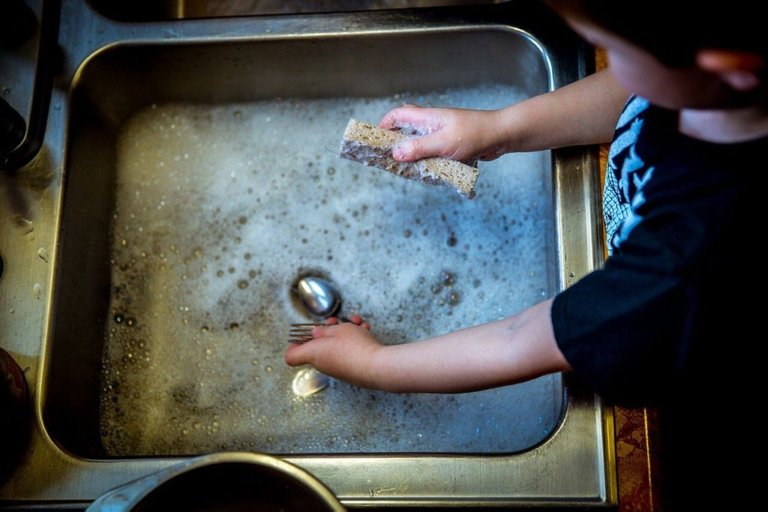
But with the maids being banned from entering residential societies due to the nationwide lockdown, I've had to help my mom with the domestic chores. As a result, I've learned to do all the household chores ranging from dusting, sweeping, mopping to cooking, washing dishes, and cleaning bathrooms. And boy, does the body pain from all the freaking effort!
I'd like to take this opportunity to thank all the homemakers and home helps around the world who have tirelessly done the thankless job of maintaining a house with utmost commitment.
Also, a silent thank you to the circumstances for not only making millions of privileged people like me understand the effort that goes into domestic chores but also for transforming us into self-reliant people.
12. Technology Can Be Our Best Hope In Fighting The Next Pandemic
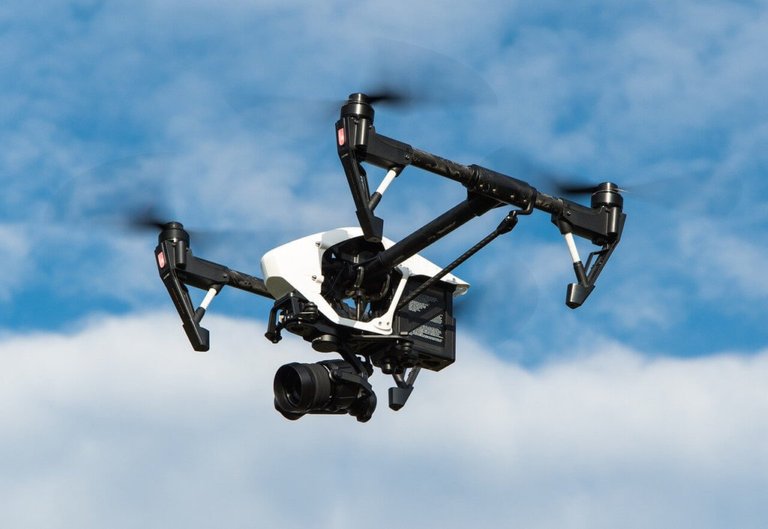
The world is literally getting through the coronavirus pandemic because of a single massive weapon called technology. Here are some of the ways in which technology is proving to be an invaluable asset during corona :
- Telemedicine is allowing doctors to evaluate, diagnose, and treat patients in remote locations over video calls. It allows people quick, efficient, and cheaper access to healthcare services without travel. It's a revolution in the health industry that
- Artificial intelligence-powered thermal cameras are helping in screening people for corona symptoms like elevated body temperature. Drones, CCTV's, and Location Tracking are providing assistance in public surveillance. Mobile apps like Aarogya Setu in India and C-19 COVID Symptom Tracker in the UK are helping people stay safe by spreading awareness about the symptoms, alerting people about corona hotspots, and providing tools for self-testing.
- Schools and universities are switching to online classes and e-learning. Lectures are either being held live online through video conferencing apps like Zoom and Google Hangouts or are being uploaded as pre-recorded tutorials on Youtube. Several education companies and online learning platforms are providing discounted and free subscriptions to students to continue learning during the lockdown.
- Companies are encouraging employees to "work from home". As a result, people are using video conferencing tools to carry out their work, reducing operational costs considerably.
- Online streaming platforms like Netflix, Amazon Prime Video, Hulu, Youtube TV, Disney Plus, etc., are keeping people entertained by offering a buffet of engaging, high-quality content to choose from.
- Social media apps like Facebook and Instagram are keeping people engaged by spreading positivity and entertainment through funny memes, entertaining baby and dog videos, and articles.
Technology is currently playing a pivotal role in the fight against COVID-19. Hence, one of the major ways in which coronavirus will change the world is by making humanity realize that technology can be our best hope in fighting the next pandemic.
13. Realizing That Capitalism Fails In Fighting Pandemics
Capitalism is a large reason why countries are failing in their fight against coronavirus. Take the United States for example. Compared to other nations, it has suffered the most number of deaths due to coronavirus.

Because of capitalism, there's an unhealthy distribution of wealth in the US with a handful of people holding more wealth than the bottom 50% of the country. These capitalists make the major decisions in hospitals, pharma companies, insurance companies, and medical equipment manufacturing companies. With their focus solely being on profits, the healthcare industry functions as a money-making entity instead of a life-saving one. Quality healthcare, as a result, becomes inaccessible for the common man. This is the reason why the working class, which forms a majority of the US population, is finding it difficult to afford the expensive medical treatment for COVID-19.
While the testing for coronavirus is free, the treatment, according to a recent analysis, could cost up to $20,000. Therefore, people are either delaying medical treatment due to costs or getting bankrupt because of medical debt. Under socialism, this would never happen as proper healthcare would be a human right.
In a capitalist economy, private individuals hire people. These individuals create a workforce that becomes unemployed and doesn't contribute anything to the country's economy in the face of a pandemic. On the other hand, in a socialist economy, the state is the primary employer. It can offer full employment to people and can also ensure the production of goods and services that can be directly put to use in the face of a pandemic.
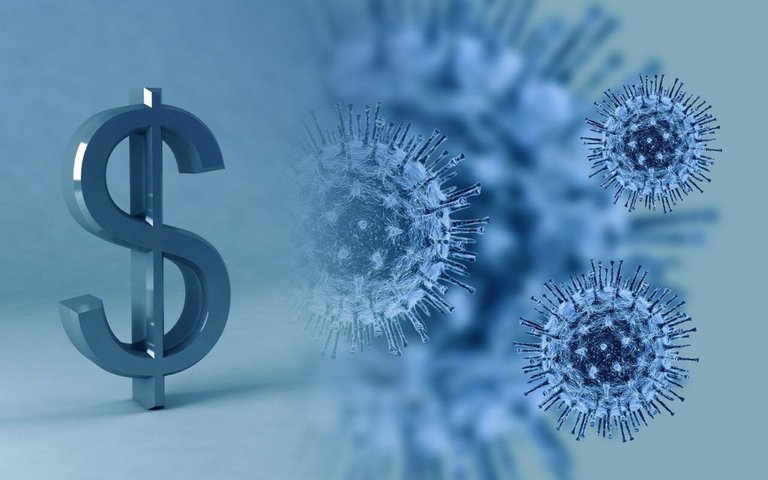
As governments around the world are suffering huge losses of lives and money due to the capitalist approach, they're consequently realizing that capitalism fails in fighting pandemics and that socialism is the solution.
14. We Will Have More Gratitude
As human beings, we are never content with what we have. For us, the grass is always greener on the other side. We are constantly comparing ourselves with others, wanting to be better than them. In this continuous struggle to be the best and have the best of everything, we forget to count our blessings and be grateful for the things we have. However, the coronavirus crisis is changing this attitude of ours.

While we are safe, well-fed, and protected in our homes, the migrant workers and their families are finding it difficult to survive without any food, water, and shelter. Seeing their miserable condition makes us realize how lucky and privileged we are. It fills us with mixed feelings of relief, sympathy, and gratitude. Relief that we aren't facing the same crisis, sympathy for the people who are suffering, and gratitude for having all the resources we need in these turbulent times. Suddenly we aren't worried about meaningless things like who's got a bigger car or who's got a better paying job.
To summarize, we can say that coronavirus will change the world by teaching us two important lessons - 1) to be content and 2) to have more gratitude.
15. Changing Our Values
The coronavirus pandemic has led to a dramatic change in our behaviour and values. People are experiencing a regained sense of shared humanity because they are taking precautions to not only save their own life but the lives of others as well. They are realizing that what matters most to them is the health and well-being of their loved ones which, by extension, becomes the health and well-being of their society, state, country, and fellow world citizens too.
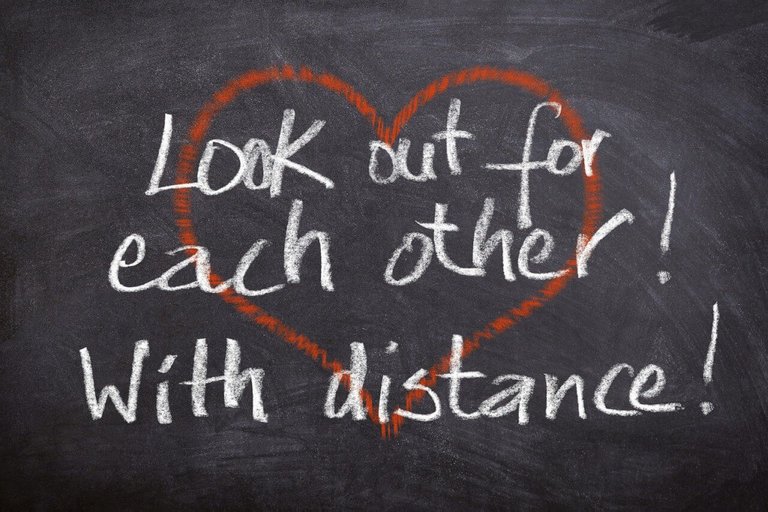
Here's how the crisis is uniting people like never before. :
- People are donating generously to various funds and NGOs that support noble causes like feeding the underprivileged during the lockdown and providing their country's medical teams with essential medical supplies and equipment to fight the coronavirus disease.
- By forming neighbourhood delivery networks, people are trying to ensure that nobody is starving.
- In fact, they're even creating low-cost ventilators and sanitization chambers to help the medical and security teams in managing the pandemic.
- We are finally reconnecting with old friends and relatives who we'd lost touch with over audio and video calls. The customary "hey! what's up?" is replaced by a more concerned "are you okay? how are you holding up?"
- People are singing and playing musical instruments in their balconies to entertain others and reduce the stress caused by self-isolation.
There's a greater sense of community as we are seeing the positive results that collective action can achieve. Coronavirus is changing our values for the better. It is making us more compassionate towards each other and the environment. Hopefully, we'll hold on to these values after overcoming the pandemic and rebuild our social and economic systems in a manner that makes them better equipped to handle global challenges like COVID-19 in the future.
16. Choosing a Less Hurried Life Is Also An Option
Coronavirus has slowed down the pace of the world. It is like the world which was buzzing with noise and activity 24x7 has been put under anesthesia. With everything shut and plenty of time available, we are getting to reflect on our lives and live at our own pace.
However, things weren't like this previously. Before the pandemic, we were living a fast and frenzied life. We were running behind our goals throughout the day and trying to be as productive as possible because we were taught that "time is money". Stillness and patience weren't exactly our strong points.

But the lockdown has made us embrace slowness and tranquility. We are getting to step back, look objectively at our priorities, and truly understand who we are, as individuals and as a society. We are realizing that it's okay to not be productive and to let the mind wander aimlessly without worrying about where we are heading. It's okay to not rush. Life isn't a race to be won but an experience to be relished. Coronavirus will change the world by making people realize that choosing a less hurried life is also an option.
Conclusion
What is clear from our response to COVID-19 is that there are serious deficiencies in our existing system. Fear is that the pandemic will lead to a severe global recession.
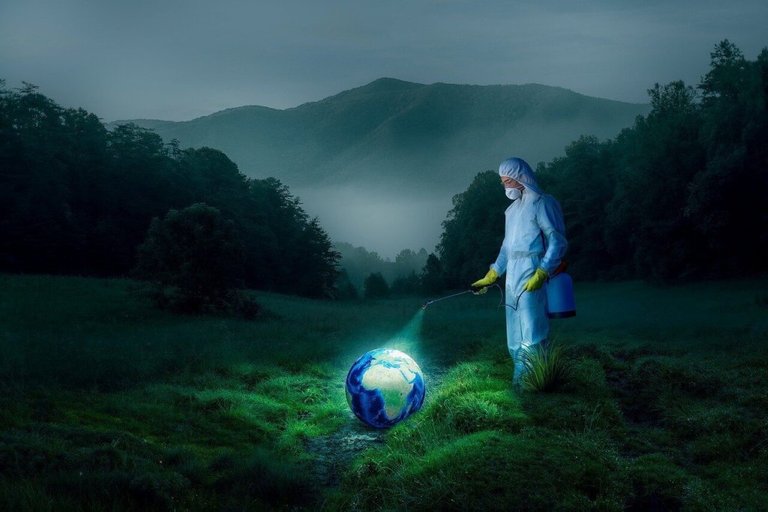
However, there also exists a hope of the world getting sanitized by a radical social change. A change that leads to the formation of a system that mobilizes resources democratically to build a stronger healthcare system, prioritizes life over profit-making, and enables people to not work meaningless jobs but jobs that contribute to the country's economy during a pandemic.
We may not know when the crisis will end but we do know one thing for certain - coronavirus will change the world and our lives are no longer going to be the same as they were before the pandemic.
SHARE this post "How Coronavirus Will Change The World" with your friends, family, and social circles to make them aware of the situation and give them something to think about.
PIN the image below to share the post "How coronavirus will change the world" with your friends and followers. Save it for reading later. Also, SUBSCRIBE to "The Wandering Vegetable" for more such 'Slice of Life' posts.

Posted from my blog with SteemPress : https://thewanderingvegetable.com/how-coronavirus-will-change-the-world/